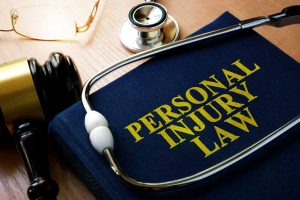
The general premise of a personal injury case is familiar to most people. If a person hurts you, you can sue them for financial recovery of your damages. However, that is a very general definition that does not consider the various subtleties of personal injury law. A wide range of situations, accidents and types of injuries can be included in civil claims and lawsuits concerning plaintiffs seeking compensation for preventable damages. There may be many circumstances in the underlying accidents to impact the viability of the case. But no matter how a personal injury case is formed, it has to be based on an actual “personal injury.”
“Personal Injury” Explained
Generally, the term “personal injury” refers to the section of law that allows victims of preventable accidents and injuries caused by someone else’s carelessness to be compensated financially. These claims are known as “torts,” which means they are civil legal actions filed over alleged wrongs.
Damages
Personal injury cases, as civil claims, are resolved by an award of damages. In other words, financial compensation paid by the defendant (liable party) to the plaintiff (injured victim). In criminal cases, sanctions and penalties may be jail time or fines, but in civil cases involve an award of damages. Damages awarded in personal injury cases commonly include losses such as:
- Medical expenses, past and future, incurred by victims
- Lost income and lost future income
- Physical suffering and pain
- Loss of quality of life, mental anguish, and other emotional injuries
As each case is unique, and every victim has different losses, there are many variations in damages that any victim can recover.
Negligence and Liability
A plaintiff’s claims that the “duty of care” has been breached can also differ. The general definition is a failure to exert reasonable care or caution, however, depending on the facts it can look very different. Here are some examples:
- Any reasonable person knows that texting while driving increases the risk of a crash. This would therefore constitute a breach of a driver’s duty, creating liability for any resulting injury caused by the crash.
- The failure of a driver to follow the rules of the road, i.e. stop at a stop sign, or failure to drive at the speed limit could constitute a breach of duty and create liability for damages.
- A property owner failing to address conditions that pose potential hazards or a dangerous condition to their guests may possibly be a legal breach which creates liability for resulting preventable injuries.
The two most important factors when classifying a personal injury are liability and damages. Most importantly these “damages” have to be actual damages. If victims have not actually suffered real injuries and resulting loses, such as no mental or physical injury, medical bills, lost income, pain and suffering, in the eyes of the law there is no “personal injury” and likely no viable claim or way to hold another liable for money damages.
At Cunnane Law we are dedicated to handling cases where injured victims and wrongful death are involved. We have the resources and experience to effectively handle all situations, standards, and types of cases existing within the complex practice arena of personal injury law. We are passionate about our clients receiving the support and guidance they need in the fight for justice and the compensation they deserve. Contact us today to discuss your own personal injury legal needs.
Note: This information was provided not for any specific claim and is written in board and general terms and may not be the right path to follow for a particular claim or case. This information is not intended to create an attorney client relationship. It is always best to receive direct legal counsel for your legal issues. It is never too early to call the attorney, but it can be too late.

 You Deserve an Advocate
You Deserve an Advocate